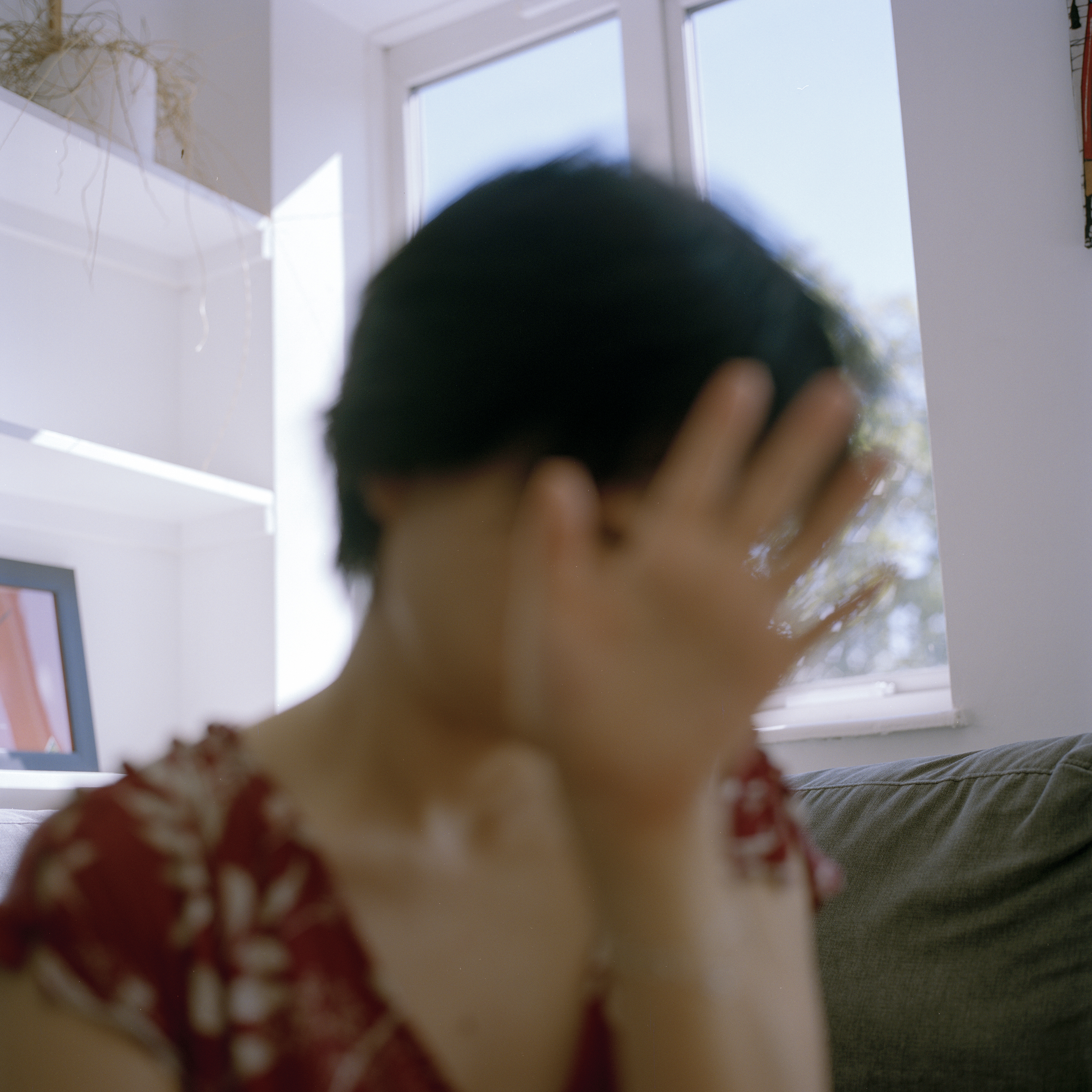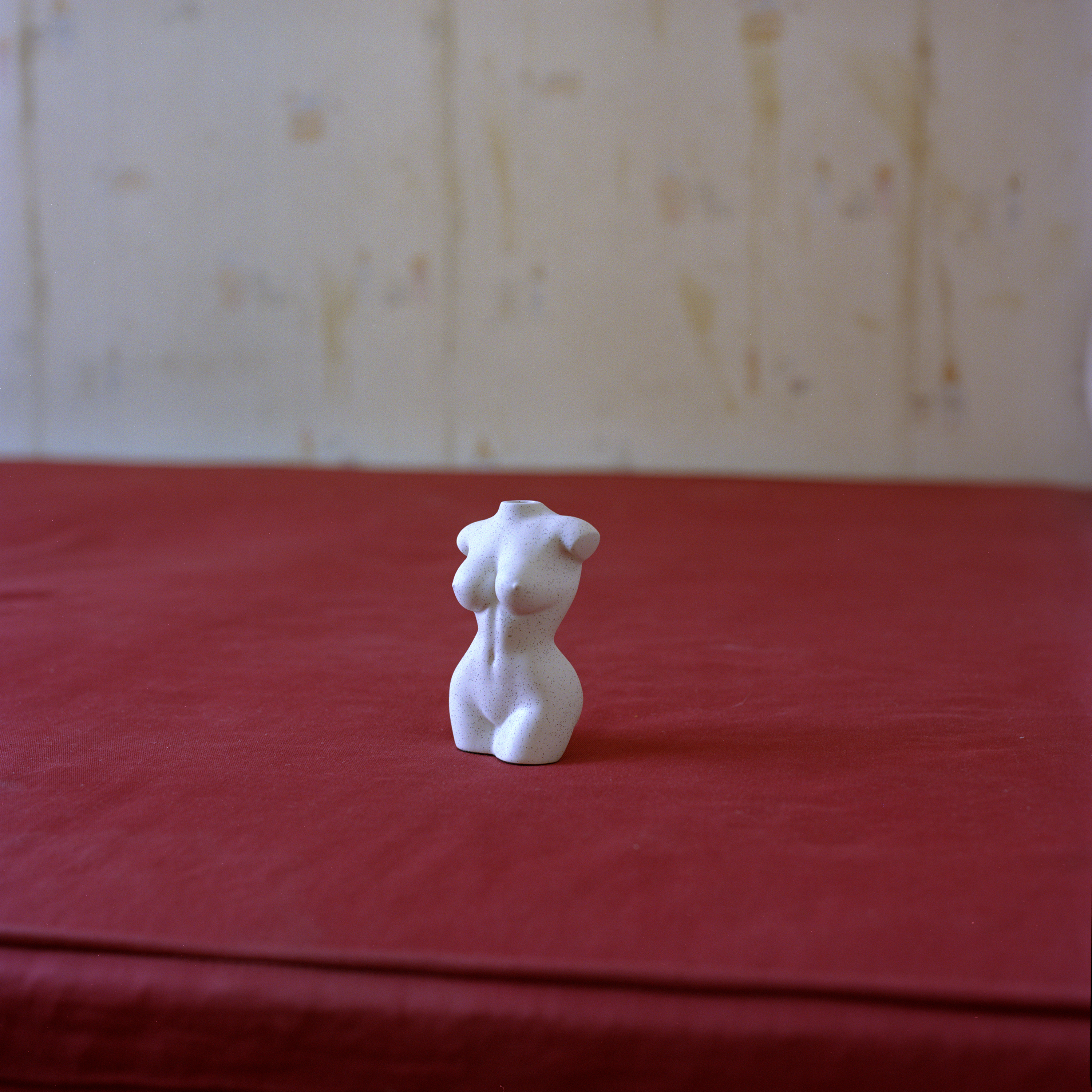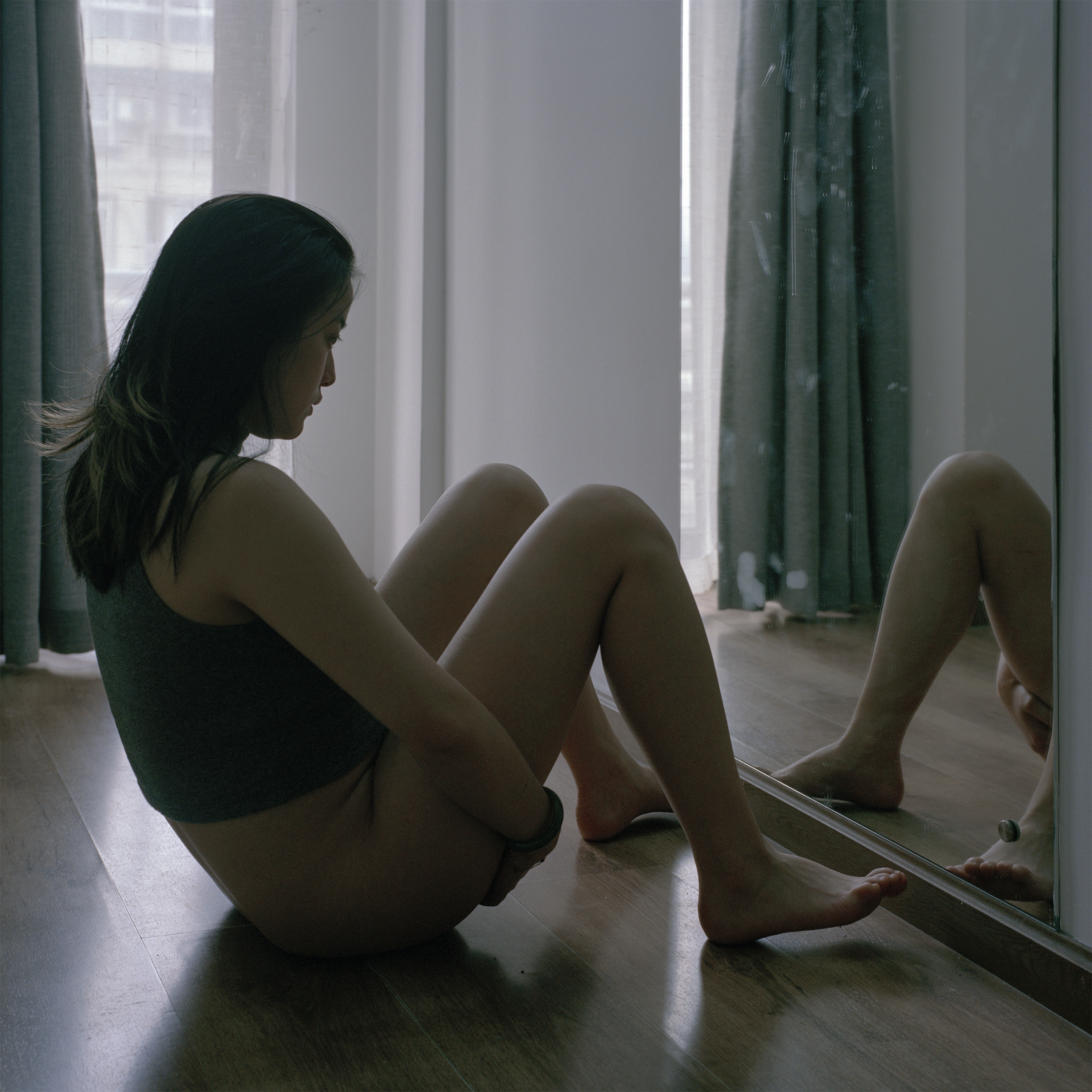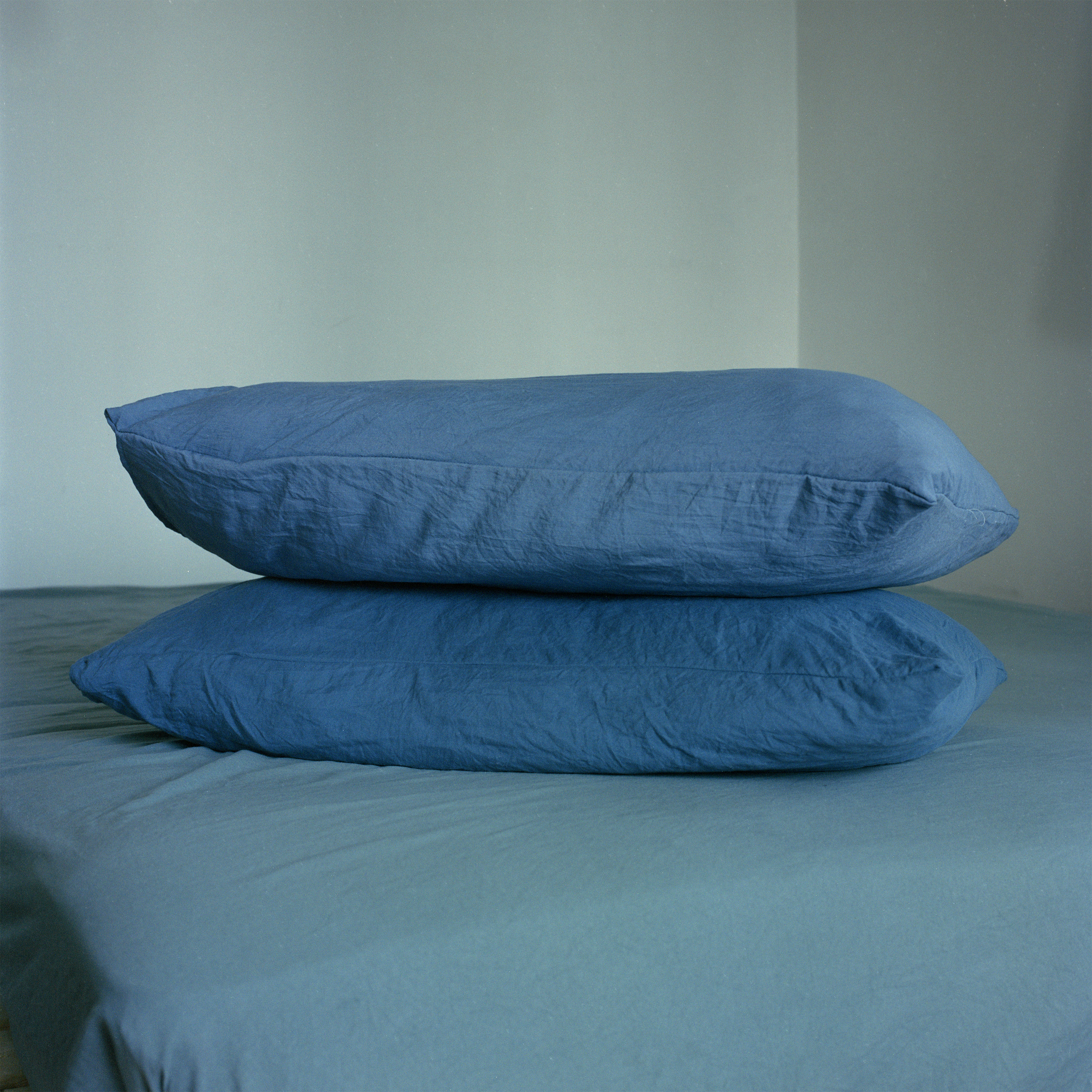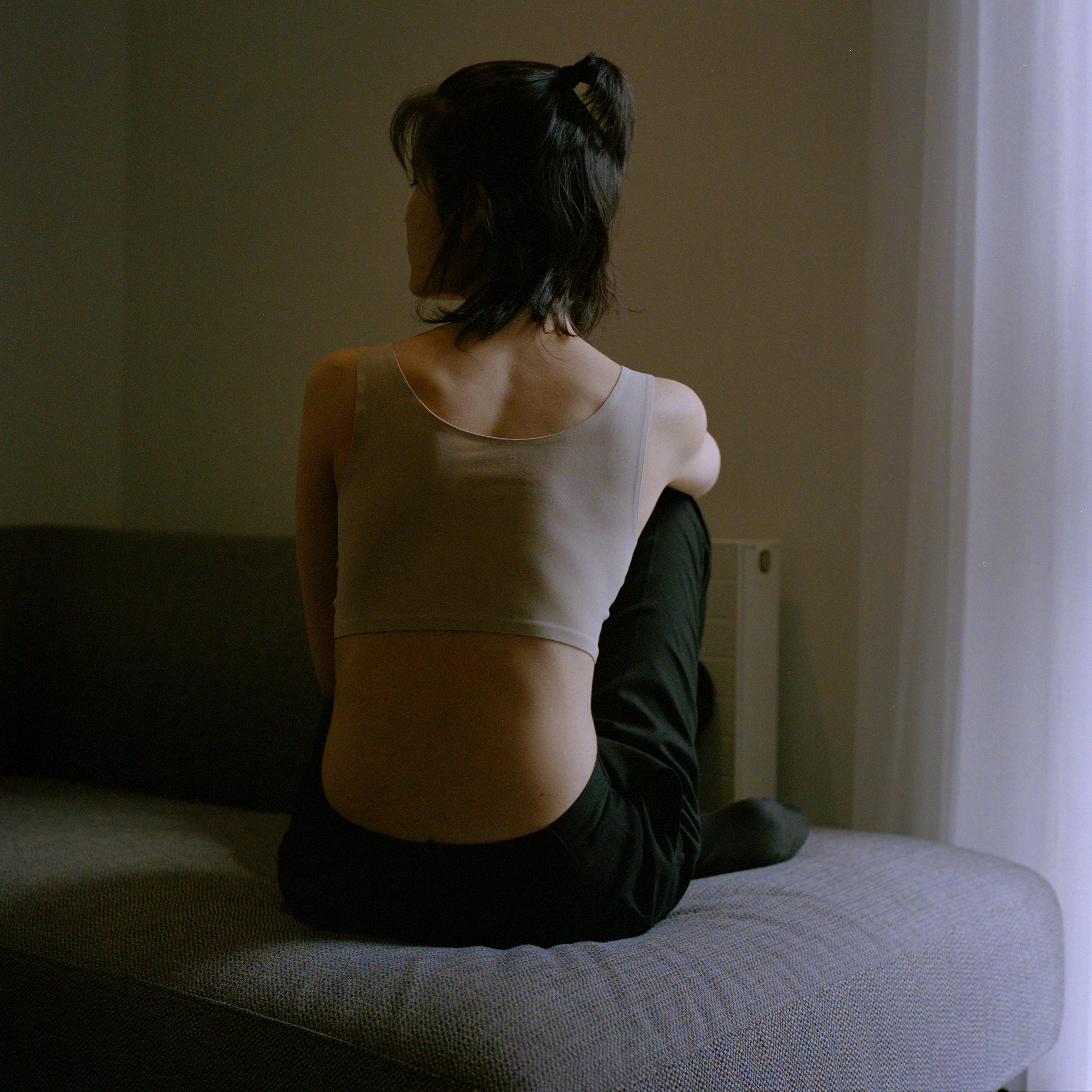Penia 潘妮娅
In Plato’s Symposium, Penia is the mother of the god of love, Eros. Porus is the father of Eros. While Penia stands for poverty and ugliness, Porus is clever and resourceful. Penia takes advantage of Porus when he is drunk and that is how Eros is born. For me, that these passed-down stories are similar to the patriarchy that run through my family, and have been passed down from generation to generation in China.
Born into a relatively conventional family in China, my father always wanted a son because he believed that only boys can inherit certain spirits. Still, I grew up with no brother, but three sisters. I knew I was a girl but I had been told, that it was better to be a boy. Therefore, during my childhood and adolescence, my feelings about gender and about boys were confused and conflicted. These early experiences have had a huge influence on my project.
I explore the duality of my existence in the project Penia. I work with the feeling that I am imprisoned by a binary vision of gender and my work expresses the intention to break out of the prison created by this binary view.
I intend to represent or even respond to the impact of the ‘gaze’. Starting from Mulvey’s (1975) notion of the Male Gaze, I believe that the gaze is more about projecting onto others assumptions from personal experience. People observe others and reflect on themselves through the gaze in a way that is similar to the way photos, as objects, are both interpreted by and, at the same time, act on spectators. By playing with the notion of the gaze, I want to deconstruct certain stereotypes and blur the boundary lines of gender.
在柏拉图的《会饮篇》中,潘妮娅是爱神厄洛斯的母亲。波罗斯是爱神的父亲。潘妮娅象征着贫穷和窘迫,而波罗斯则代表富有和聪慧。在一次宴会之后,潘妮娅趁波罗斯喝醉占有了他,由此怀上了厄洛斯。于我而言,这些流传的故事与我家族里的保守父权观念很相似,它们被一代代地传承下来。
我出生在一个相对保守的家庭,我的父亲一直想要一个儿子。他认为只有男孩才能继承某些家族精神, 并且在老家没有儿子是会被别人嘲笑的事。尽管如此,我跟三个姐妹一起长大,没有哥哥或者弟弟。经常有人告诉我如果我是一个男孩的话会更好,我也很清楚我是一个女孩。所以,在我的童年和青春期过程中,我一直对另一性别很困惑以及有着矛盾的情感。这些早期的经历对我的创作有着很大的影响。
在“潘妮娅”这个项目中,我探索着我存在的二元性。我感觉我被性别二元这一概念束缚着,而我需要打破这个禁锢。
我想通过我的作品展现甚至是回应“凝视”。由劳拉·穆尔维提出的“男性凝视”出发,我认为“凝视”更多的是以个人经验对他人进行假设。人们通过“凝视”观察他人以及反思自己,这作为物体的图像有类似之处。图像在被被观众解读的同时,也对观众进行着投射。通过把玩“凝视”,我想解构某些刻板印象,模糊性别的边界。





